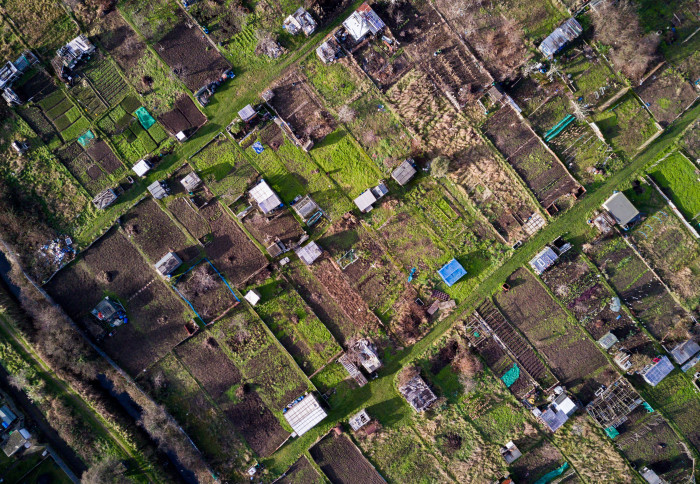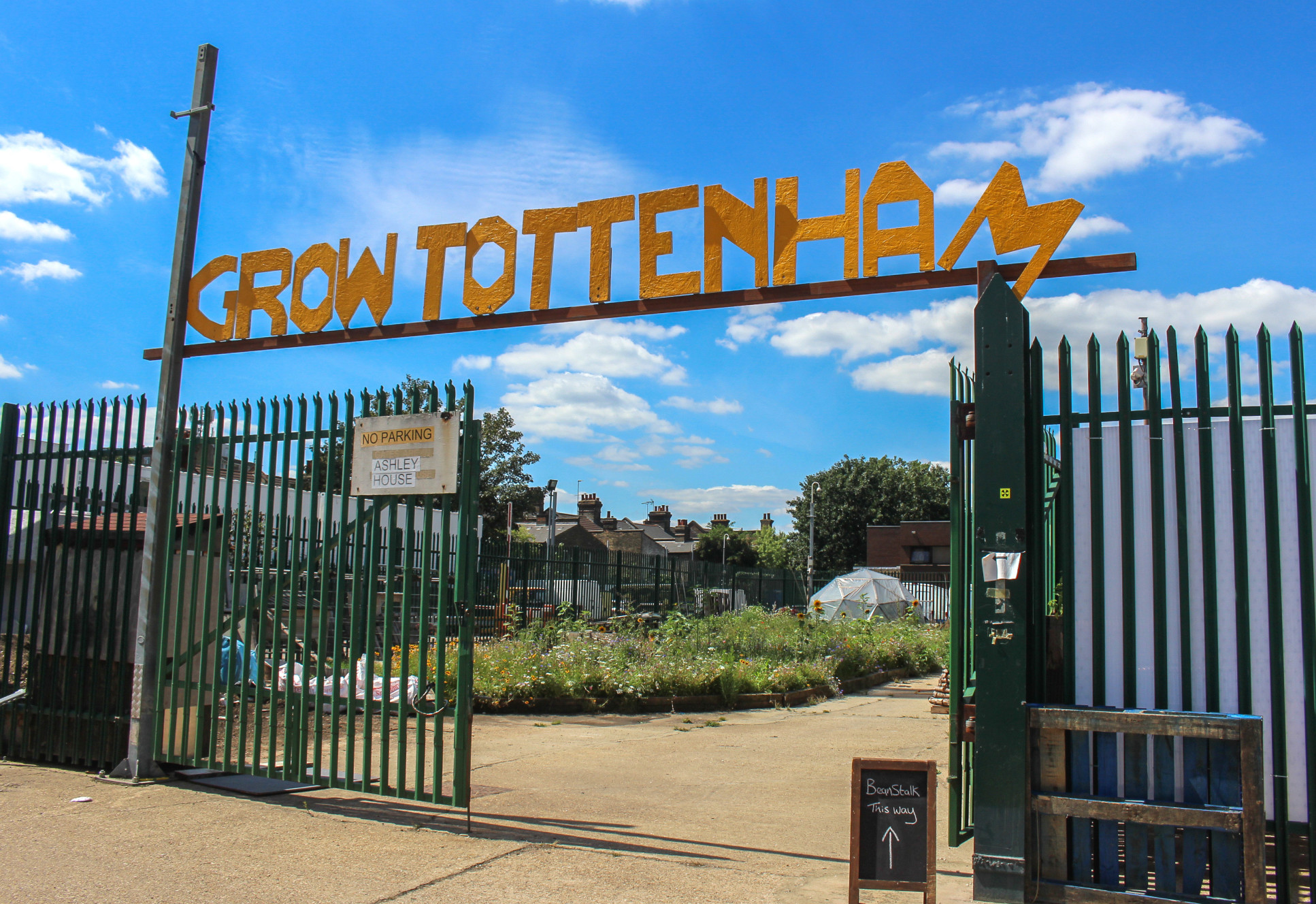Thousands chasing London allotments as supply dwindles

The mental, physical and community benefits of allotment gardening are invaluable to city dwellers, but allotments are in short supply in London.
This is one of the conclusions of a new paper by Imperial College London researchers in the Centre for Environmental Policy, published in Urban Forestry & Urban Greening. MSc student Ellen Fletcher and Dr Tilly Collins assessed allotment supply and demand in London, finding plots are shrinking while tens of thousands of people remain on waiting lists.
Forty-one London sites have closed completely in the past seven years and with over 30,000 people now estimated to be on waiting lists, there is on average a delay of four to five years before receiving a plot. To try and meet this demand the number of individual plots has been increased as surrendered plots are often now split into ever-smaller units.
We caught up with Dr Collins to find out why allotments are so important, and how research like this can inform urban greenspace policies.
Why is it important to provide gardening opportunities in cities?
There is abundant evidence that connection with greenspace is vital to people's mental health and wellbeing in cities; an active connection via gardening builds on this and adds physical health and social benefits through added community cohesion.
A previous Dutch study found that allotment gardeners were healthier, had lower BMIs and visited their doctors less frequently than their non-gardening neighbours. This emphasises the ’social prescription’ and ‘ecotherapy’ value of access to gardening opportunities, especially for those who do not have private gardens.
You looked at the situation in London – what did you find?
London’s allotments are in great decline. Ellen’s detailed exploration reveals that the area dedicated to allotment gardening is now being lost at a dramatic rate; approximately triple that of a decade ago.
This decline in provision has coincided with an increase in popularity; we found that the demand for allotments has increased four-fold since 2006.
So popularity is increasing while provision is decreasing. What can be done to redress the balance?
Only four London boroughs currently have an allotment strategy and many councils are stuck between a rock and hard place when it comes to funding, or resisting sale, of these open spaces. An improved appreciation of the many health benefits and increasing participation would allow the spaces to be better accounted for.

Allotment provision should be considered at a landscape scale and improving communication between local administrations in this regard, as well as between hierarchies, could help reduce their loss substantially.
What benefits might there be beyond allowing people to garden?
There is now a real urgency to meet the commitments of sustainable city policies and allotments help these. As well as the direct human benefits, they contribute to pollination, nutrient cycling, water purification, floodwater management, local climate and air quality and soil fertility. Allotments create a mosaic of habitats and promote biodiversity in urban settings by providing high-quality and varied habitats for many species. Even small allotment sites can make big contributions to a habitat network and can serve as stepping stones between larger habitat areas.
Allotments have their roots in sustainable, healthy and local food provision and make a contribution to resilience during supply shocks, such as those experienced during the COVID-19 lockdown. Their educational value improves environmental understanding, helps many to understand some of the basics of food production and leads to more nutritious, vegetable-based shopping decisions.
What are you going to study next?
We know that many other cities face similar issues and that what we have learned here can inform wide-scale policy. Community gardens, where plots are shared, show some promise but may not deliver elements of ‘relaxation’ that many in this work found to be so important. Our upcoming work looks more closely at food production and the social equity of allotment access and Ellen Fletcher is now poised to move to DEFRA where she will be working on public food sustainability.
Equity of greenspace access and the change in perception of greenspace value during COVID-19 is also of great interest and reporting on this is at draft stage.
-
‘Urban agriculture: Declining opportunity and increasing demand—How observations from London, U.K., can inform effective response, strategy and policy on a wide scale’ by Ellen Iona Fletcher and Matilda (Tilly) Collins is published in Urban Forestry & Urban Greening.
Top image credit: pxl.store
Article text (excluding photos or graphics) © Imperial College London.
Photos and graphics subject to third party copyright used with permission or © Imperial College London.
Reporter
Hayley Dunning
Communications Division